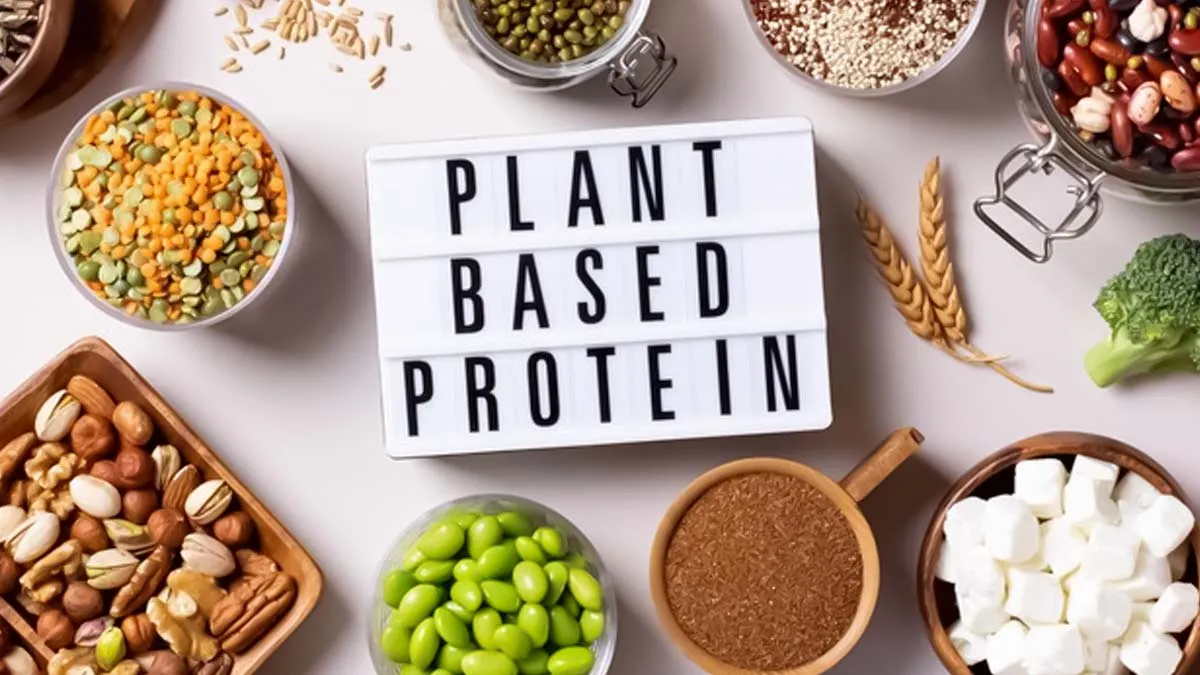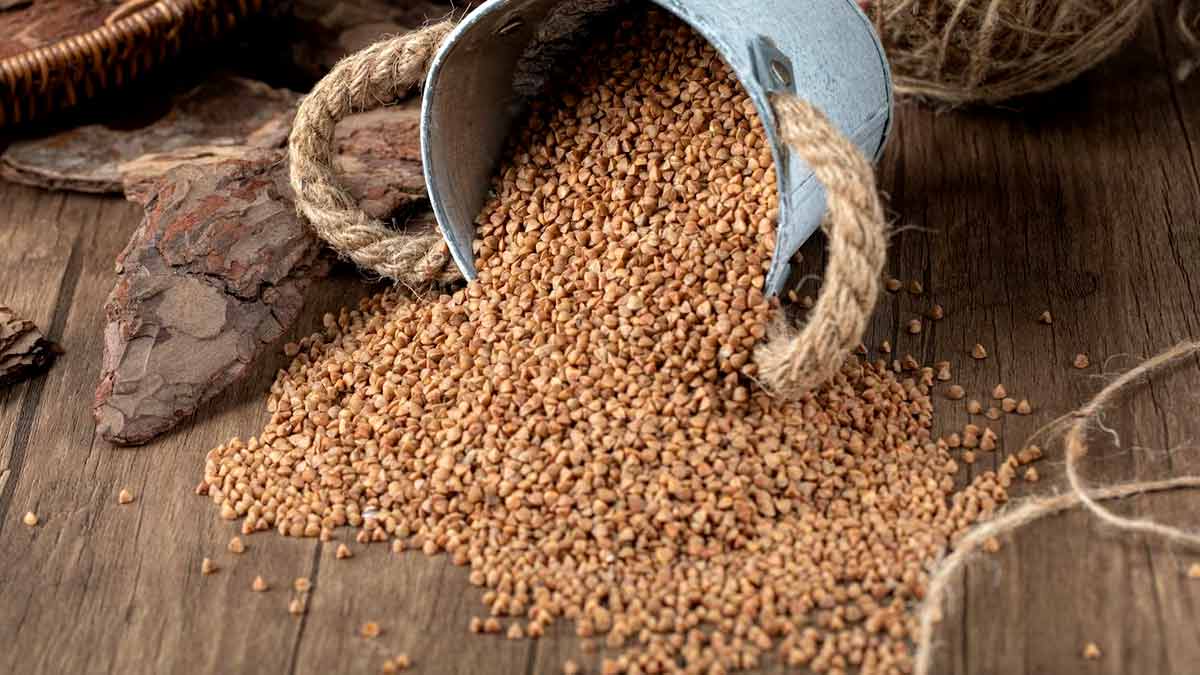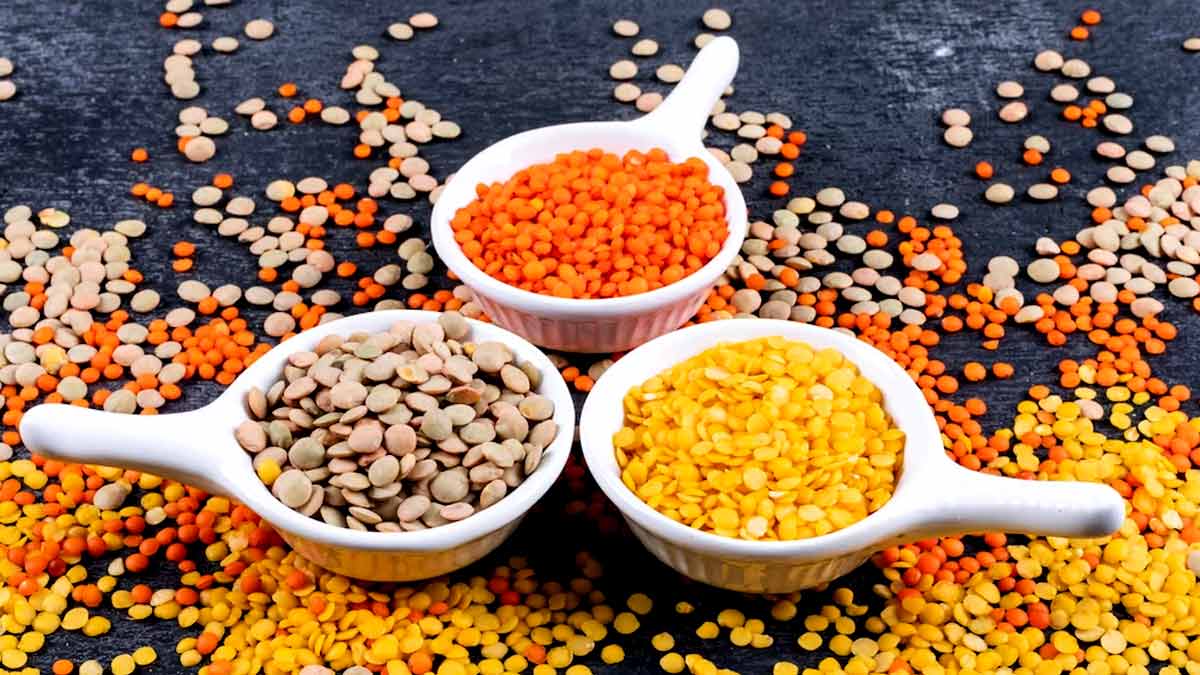
For vegetarians, the question often arises: "Where do you get your protein?" The answer is simple: everywhere! The plant kingdom is brimming with incredible protein sources that can easily meet and exceed your daily needs, supporting everything from muscle growth to a robust immune system. Far from being limited, a well-planned vegetarian diet offers a diverse and delicious array of protein-rich foods.
Table of Content:-
So, if you're a vegetarian looking to maximise your protein intake, or simply curious about the power of plants, here is a complete guide. We spoke to our expert, Dr Bhumesh Tyagi, Consultant, General Medicine and Physician at Shardacare, Health City, Noida, and he shared the best plant-based protein foods, along with tips on how to incorporate them into your daily meals.
Why Should You Opt For Plant-Based Protein?
Beyond simply meeting your protein requirements, opting for plant-based sources offers a wealth of additional health benefits:
- Fiber Fantastic: Most plant proteins are packed with dietary fiber, crucial for digestive health, blood sugar regulation, and satiety.
- Heart-Healthy Heroes: They are typically lower in saturated fat and cholesterol compared to animal proteins, contributing to better cardiovascular health.
- Nutrient Powerhouses: Plant proteins often come with an impressive array of vitamins, minerals, and antioxidants.
- Sustainable Choice: Choosing plant-based options is generally more environmentally friendly, requiring fewer resources to produce.

Also Read: Expert Reveals Why Long-term Relationships Fizzle Out
Best Plant Based Protein Foods For Vegetarian
Let's explore the star players in the world of vegetarian protein:
1. Legumes
Legumes are the cornerstone of any vegetarian diet, offering an incredible amount of protein, fiber, and complex carbohydrates.
- Lentils: Versatile and quick-cooking, lentils are a powerhouse of protein (around 18g per cooked cup). They're perfect for soups, stews, dahls, salads, and even burgers.
- Beans (Black, Kidney, Chickpeas, Pinto, etc.): A staple in cuisines worldwide, beans are incredibly versatile and protein-rich (15g per cooked cup for black beans). Use them in chili, tacos, burritos, salads, dips (like hummus!), or as a hearty side dish.
- Edamame: These young soybeans are a complete protein (meaning they contain all nine essential amino acids) and provide about 18g of protein per cooked cup. Enjoy them steamed as a snack, or add them to stir-fries and salads.
- Peas: Don't underestimate these little green gems! Peas offer a decent protein boost (around 8g per cooked cup) and are great in curries, stir-fries, or as a simple side.
2. Soy Products
Soy-based foods are excellent sources of complete protein and can be incredibly versatile in the kitchen.
- Tofu: A fantastic canvas for flavor, tofu (around 10g protein per 100g) can be baked, fried, grilled, scrambled, or added to stir-fries and curries. Look for firm or extra-firm varieties for best results.
- Tempeh: Made from fermented soybeans, tempeh has a firmer texture and nuttier flavor than tofu (around 19g protein per 100g). It's excellent in sandwiches, stir-fries, or marinated and grilled.
- Natto: A traditional Japanese food made from fermented soybeans, natto has a distinctive sticky texture and strong flavor (around 18g protein per 100g). While an acquired taste for some, it's incredibly nutritious.
- Soy Milk: A popular dairy alternative, soy milk (around 7g protein per cup) can be used in smoothies, cereals, or simply enjoyed on its own.

Also Read: Is Korean Skincare Right for Indian Skin? Expert Shares Insights
3. Grains
Certain grains stand out for their impressive protein content.
- Quinoa: This ancient grain is a complete protein (around 8g per cooked cup) and is incredibly versatile. Use it as a base for salads, a side dish, or in breakfast bowls.
- Buckwheat: Despite its name, buckwheat is not related to wheat and is naturally gluten-free. It offers around 6g of protein per cooked cup and can be used in porridges, pilafs, or as flour for pancakes.
- Oats: A breakfast staple, oats provide a good amount of protein (around 5g per half cup dry) and fiber. Enjoy them as oatmeal, in granola, or baked goods.
- Whole Wheat Products: While not as high in protein as some other grains, whole wheat bread, pasta, and other products contribute to your overall protein intake and offer valuable fiber.
4. Nuts and Seeds
These tiny titans are packed with protein, healthy fats, and a variety of micronutrients.
- Chia Seeds: These tiny seeds are a protein and fiber superstar (around 5g protein per 2 tablespoons). Add them to smoothies, yogurt, or make chia pudding.
- Hemp Seeds: Offering a complete protein (around 10g per 3 tablespoons), hemp seeds have a mild, nutty flavor. Sprinkle them on salads, yogurt, or blend into smoothies.
- Almonds: A popular snack, almonds provide around 6g of protein per ounce.
- Peanuts & Peanut Butter: Peanuts are technically legumes but are often consumed as nuts. They offer around 7g protein per ounce, and peanut butter is a convenient source.
- Walnuts: Another great source of protein (around 4g per ounce) and omega-3 fatty acids.
- Pumpkin Seeds: These seeds are a good source of protein (around 8g per quarter cup) and zinc.
- Sunflower Seeds: Offer about 6g protein per quarter cup and are rich in Vitamin E.
5. Vegetables
While not primary protein sources, many vegetables contribute small but significant amounts of protein, and when combined, they add up!
- Spinach: Around 5g protein per cooked cup.
- Broccoli: Around 4g protein per cooked cup.
- Asparagus: Around 4g protein per cooked cup.
- Potatoes: A surprisingly good source of protein for a vegetable, offering around 4g per medium potato.
- Mushrooms: While not a significant source, certain mushrooms contribute to your overall intake.
How To Maximise Plant-Based Protein Intake
- Combine and Conquer: Pair different plant protein sources throughout the day to ensure you're getting a full spectrum of amino acids. For example, rice and beans, or hummus and whole-wheat pita.
- Snack Smart: Keep protein-rich snacks handy, like a handful of nuts, roasted chickpeas, or an apple with peanut butter.
- Make it a Main Event: Build your meals around plant-based protein. Instead of meat being the star, let lentils, tofu, or beans take center stage.
- Experiment with New Foods: Don't be afraid to try new legumes, grains, or soy products to expand your palate and protein sources.
- Cook in Batches: Prepare large batches of cooked grains or legumes at the beginning of the week to easily add to meals.
- Listen to Your Body: Pay attention to your energy levels and satiety to ensure you're consuming enough protein.
Trying a vegetarian diet rich in diverse plant proteins is not only satisfying but also beneficial for your health and the planet. With this guide in hand, you have all the tools you need to power up your plate with delicious, nutritious, and abundant plant-based protein. Happy eating!
Also watch this video
How we keep this article up to date:
We work with experts and keep a close eye on the latest in health and wellness. Whenever there is a new research or helpful information, we update our articles with accurate and useful advice.
Current Version